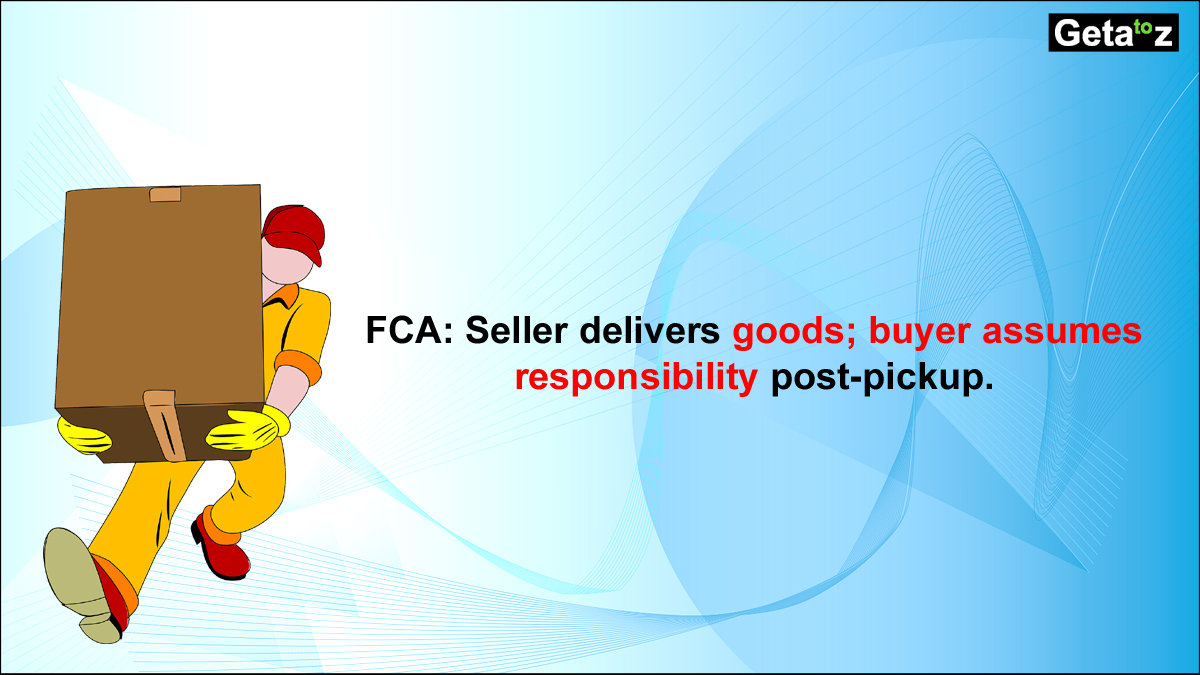Incoterm 'Free Carrier' (FCA)
Updated: December 8, 2024

Responsibility of Seller:
Buyer's Responsibility:
Once the goods arrive at the designated point and are handed over to the buyer's nominated carrier, the buyer assumes full responsibility. This includes the transportation, import documentation, and insurance.
Seller's Benefits:
The primary advantage for the seller in an FCA agreement is that their responsibility ends once the goods are successfully dispatched to the buyer's designated forwarder, freeing them from further obligations.
Buyer's Benefits:
The seller is responsible for transporting the goods to the buyer's chosen pick-up point, which is the main benefit for the buyer. Once the goods reach the carrier and the title transfers, they become the buyer's asset, which can be included in their inventory. The buyer is then responsible for transporting the goods to the final destination.
General Benefits:
Both the buyer and seller operate within their areas of expertise, with the seller managing the dispatch of goods from their location and the buyer handling the logistics on their end. The FCA agreement is considered fair as it divides responsibilities clearly and effectively between the two parties.
Shipping Types Benefiting from FCA:
The FCA shipping agreement is particularly beneficial for overland transit, especially in regions like Central Asia or Europe. This method works well when goods are transported by vehicle directly to their destination, and both the buyer and seller share responsibilities. It is widely used by manufacturers and traders for international shipments.
FCA vs. Other Shipping Methods:
Compared to an Ex Works (EXW) agreement, FCA places more responsibility on the seller, who must manage the export documentation and the goods until they are handed over to the buyer's nominated carrier. In contrast, in an EXW arrangement, the buyer handles all aspects of transport and documentation, with the seller's responsibilities typically limited to packaging and labeling.
In a Free on Board (FOB) agreement, the seller's responsibility ends once the ship is loaded at the port, unlike the FCA agreement where it ends at a designated transfer point such as a hub or terminal.
Conclusion:
The FCA shipping agreement effectively shares the responsibility for transporting goods between the buyer and seller. This reduces the workload for both parties while ensuring that each operates within their area of expertise. Sellers also benefit by having more time to seek new buyers. FCA is particularly preferred by sellers handling road or air freight logistics, as opposed to sea shipments.